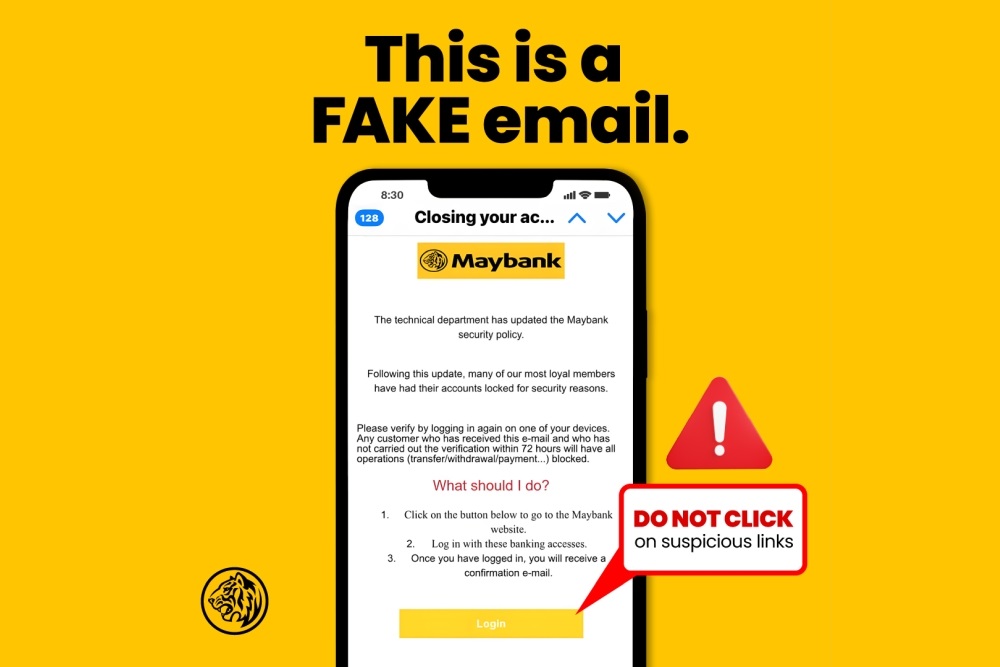Every once in awhile, you’ll see banks issuing their own public service announcements, especially following the discovery of a phishing attempt. Maybank recently issued one of its own, in response to a phishing email that has been circulating around recently. As this happens with some frequency, you may likely already know what this entails.
On its social channels, Maybank has announced that a fake email has been making its rounds, asking the bank’s customers to share their credit card information. The email opens by claiming that some accounts have been “locked for security reasons”. Following that is the claim that that those who got the fake email need to verify their accounts within 72 hours, or have their accounts locked from performing transactions. At the end is the phishing link in question.
#MBBAlert Dear Valued Customers,
There has been a fake email circulating around asking customers to share their credit card information. We strongly urge that you do not click on any suspicious links sent via emails, chats or SMSes.
(1/3) pic.twitter.com/RZ0E6GTB8B
— Maybank (@MyMaybank) August 22, 2023
This is about as clear a sign as can be that this is a phishing attempt. Naturally, the bank asks its customers to not click on suspicious links included in the email, as well as any that may come via SMS or other messaging apps. As usual, Maybank tells users that it doesn’t do things like asking you to provide your banking details in this way.
It’s interesting to note that this PSA only mentions the phishing attempt via email, and not via messaging apps or SMS. For the latter, it’s understandable why, as telcos have started blocking texts with links in them. Which means one less avenue for cybercriminals these days compared to before. That being said, the Securities Commission has said that complaints of scams have gone up rapidly since the COVID-19 pandemic back in 2020.
(Source: Maybank [1], [2], The Vibes)
Follow us on Instagram, Facebook, Twitter or Telegram for more updates and breaking news.



